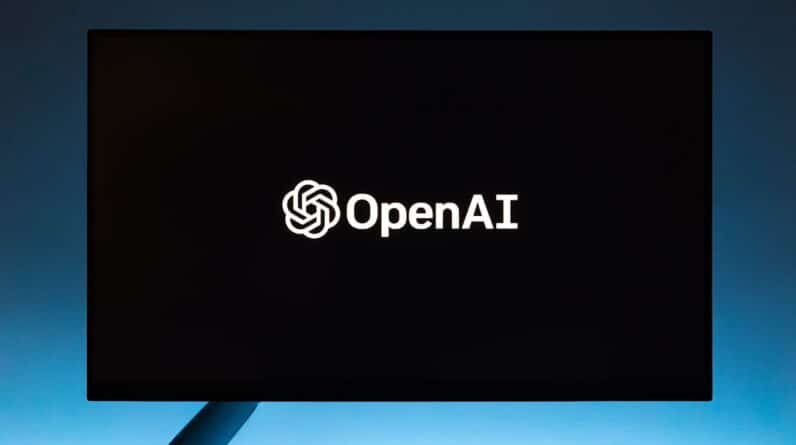As you step into the world of the AI economy, you find yourself at the intersection of technology and innovation, where artificial intelligence is reshaping industries and redefining the way we live and work. The AI economy is not just a buzzword; it represents a profound transformation in how businesses operate, how consumers interact with products and services, and how society as a whole functions. With advancements in machine learning, natural language processing, and robotics, AI is becoming an integral part of everyday life, influencing everything from healthcare to finance, transportation to entertainment.
In this rapidly evolving landscape, you may wonder how AI will impact your life and the economy at large. The potential for increased efficiency and productivity is immense, but so are the challenges that come with it. As you delve deeper into this topic, you will discover the multifaceted implications of AI on employment, income distribution, education, and ethical considerations.
Understanding these dynamics is crucial for navigating the future of work and society in an AI-driven world.
Key Takeaways
- The AI economy is rapidly growing and transforming various industries, creating new opportunities and challenges for businesses and workers alike.
- AI has the potential to significantly impact employment and income inequality, leading to job displacement and the need for new skills and training.
- Education and training will play a crucial role in preparing individuals for the AI economy, ensuring they have the necessary skills to thrive in a rapidly changing job market.
- AI also presents opportunities for prosperity, including the creation of new jobs, increased productivity, and economic growth in various sectors.
- Government policies and regulations will be essential in shaping the AI economy, addressing issues such as job displacement, data privacy, and ethical considerations.
The Impact of AI on Employment and Income Inequality
As you explore the impact of AI on employment, you may find yourself grappling with a dual narrative. On one hand, AI has the potential to automate mundane tasks, freeing up human workers to focus on more complex and creative endeavors. This could lead to increased job satisfaction and productivity in various sectors.
However, on the other hand, there is a growing concern that AI could displace a significant number of jobs, particularly in industries that rely heavily on routine tasks. The fear of job loss looms large as machines become capable of performing tasks that were once thought to require human intelligence. Income inequality is another pressing issue that arises in the context of the AI economy.
As you consider the implications of automation, you may notice that the benefits of AI are not distributed evenly across society. High-skilled workers who can leverage AI tools may see their incomes rise, while low-skilled workers face the risk of unemployment or stagnant wages. This widening gap between those who can adapt to technological changes and those who cannot raises important questions about social equity and economic justice.
You might find yourself pondering how society can address these disparities and ensure that the benefits of AI are shared more equitably.
The Role of Education and Training in the AI Economy
In an era where AI is becoming increasingly prevalent, education and training play a pivotal role in preparing individuals for the workforce of the future. As you reflect on your own educational journey or that of others around you, it becomes clear that traditional models may need to evolve to meet the demands of an AI-driven economy. Lifelong learning is no longer just a concept; it is a necessity for staying relevant in a rapidly changing job market.
You may find yourself considering how educational institutions can adapt their curricula to include skills such as data analysis, programming, and critical thinking. Moreover, training programs that focus on reskilling and upskilling are essential for helping workers transition into new roles created by AI advancements. As you think about the future workforce, you might envision partnerships between businesses and educational institutions that foster a culture of continuous learning.
By investing in education and training initiatives, society can empower individuals to thrive in an environment where AI complements human capabilities rather than replaces them.
The Potential for AI to Create New Opportunities for Prosperity
While concerns about job displacement and inequality are valid, it is also important to recognize the potential for AI to create new opportunities for prosperity. As you delve into this aspect of the AI economy, you may discover that innovation often leads to the emergence of entirely new industries and job categories. For instance, as businesses adopt AI technologies, there will be a growing demand for professionals who can develop, implement, and maintain these systems.
This shift could lead to job creation in fields such as data science, machine learning engineering, and AI ethics. Furthermore, AI has the potential to enhance productivity across various sectors, driving economic growth and improving living standards. You might consider how businesses that effectively integrate AI into their operations can achieve greater efficiency and deliver better products and services to consumers.
This not only benefits companies but also has a ripple effect on job creation and economic development. As you reflect on these possibilities, it becomes evident that embracing AI can lead to a more prosperous future if approached thoughtfully and strategically.
Government Policies and Regulations in the AI Economy
As you navigate the complexities of the AI economy, it becomes clear that government policies and regulations will play a crucial role in shaping its trajectory. Policymakers face the challenge of balancing innovation with public safety and ethical considerations. You may find yourself contemplating how governments can create an environment that fosters technological advancement while also protecting workers’ rights and ensuring fair competition.
Regulations surrounding data privacy, algorithmic transparency, and accountability are essential in building public trust in AI technologies. As you consider these issues, you might reflect on how governments can collaborate with industry stakeholders to develop frameworks that promote responsible AI use. Additionally, policies aimed at supporting workforce transitions—such as retraining programs and social safety nets—will be vital in addressing the challenges posed by automation.
By taking proactive measures, governments can help ensure that the benefits of the AI economy are accessible to all members of society.
The Ethical and Social Implications of AI Technology
Bias, Surveillance, and Misuse: Unpacking Ethical Dilemmas
Issues such as bias in AI systems, surveillance concerns, and the potential for misuse raise critical ethical dilemmas that society must confront. These concerns highlight the need for careful consideration of the implications of AI development and deployment.
Ensuring Accountability in Autonomous Systems
As AI systems become increasingly autonomous, questions about accountability arise. If an algorithm makes a decision that leads to harm or discrimination, who is responsible? This is a complex issue that requires thoughtful dialogue among technologists, ethicists, policymakers, and the public.
Building an Ethical Framework for AI Development
It is evident that fostering an ethical framework for AI development is essential for building a future where technology serves humanity rather than undermines it. This framework must promote social good, align with our values, and ensure that AI technologies are developed and deployed in responsible ways.
The Global Outlook for the AI Economy
As you look beyond national borders, it becomes clear that the AI economy is a global phenomenon with far-reaching implications. Different countries are approaching AI development with varying levels of investment, regulation, and public engagement. You may find yourself considering how international collaboration can drive innovation while also addressing shared challenges such as data privacy and ethical standards.
Emerging economies have unique opportunities to leverage AI for development purposes, potentially leapfrogging traditional stages of industrialization. As you explore this global landscape, you might envision partnerships between nations that foster knowledge sharing and technological exchange. However, disparities in access to technology and resources could exacerbate existing inequalities if not addressed proactively.
By promoting inclusive policies at both national and international levels, we can work towards a more equitable global AI economy.
Navigating the Future of the AI Economy
As you reflect on the multifaceted nature of the AI economy, it becomes evident that navigating its future will require collaboration among various stakeholders—businesses, educators, policymakers, and individuals like yourself. Embracing change while addressing challenges such as employment displacement and ethical considerations will be crucial for harnessing the full potential of AI technology. In this journey towards an AI-driven future, your role as an informed citizen becomes increasingly important.
By staying engaged with discussions about technology’s impact on society and advocating for policies that promote equity and responsibility, you can contribute to shaping a future where the benefits of the AI economy are shared by all. As you move forward into this new era, remember that while challenges exist, so too do opportunities for innovation and growth—if approached with foresight and intention.
In a related article on AI Lab 360, the impact of artificial intelligence on drug discovery and pharmaceutical research is explored in depth. The article discusses how AI is revolutionizing the field by accelerating the process of developing new drugs and treatments. To learn more about this fascinating intersection of technology and healthcare, check out the article here.
FAQs
What is the AI economy?
The AI economy refers to the economic impact of artificial intelligence technologies on various industries and sectors. It encompasses the use of AI for automation, data analysis, decision-making, and innovation.
How is AI contributing to economic prosperity?
AI is contributing to economic prosperity by increasing productivity, driving innovation, creating new job opportunities, and improving efficiency in various industries. It has the potential to generate significant economic growth and enhance global competitiveness.
What are the potential concerns about the AI economy?
Some potential concerns about the AI economy include job displacement due to automation, widening economic inequality, ethical implications of AI decision-making, and the concentration of AI-related wealth and power in the hands of a few companies or countries.
How can the AI economy address inequality?
To address inequality in the AI economy, policymakers and businesses can focus on providing education and training for AI-related skills, promoting inclusive AI development and deployment, and implementing policies that ensure fair distribution of the economic benefits of AI.
What are some examples of AI applications in the economy?
AI applications in the economy include autonomous vehicles, predictive analytics for healthcare and finance, personalized marketing and customer service, smart manufacturing and supply chain optimization, and natural language processing for communication and data analysis.






